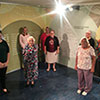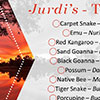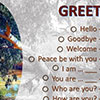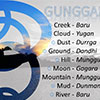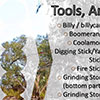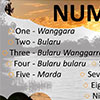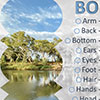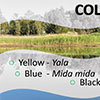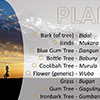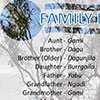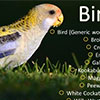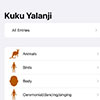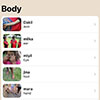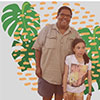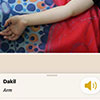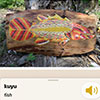Preservation projects in Queensland
2019 projects
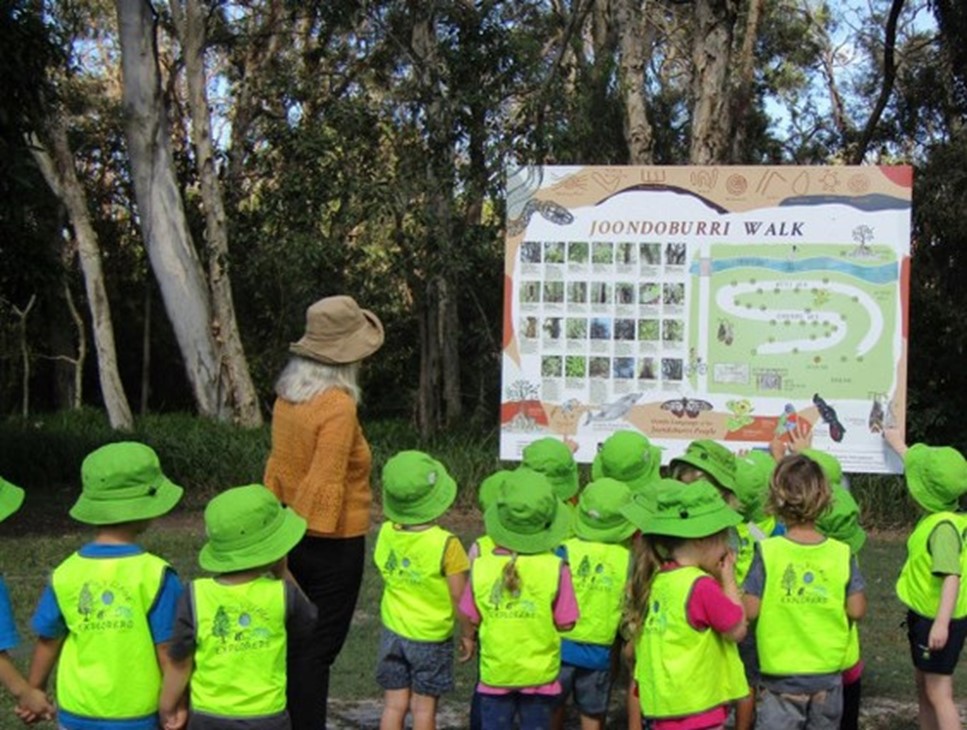
Nestled in a beautiful bush setting, the Bribie Island Community Kindergarten offers children a chance to connect with nature and build an appreciation for the traditions and knowledge of the Gubbi Gubbi people from an early age.
Their 2019 Indigenous Languages Grant supported the kindy to work with Traditional Elders to help promote, preserve and revitalise the Gubbi Gubbi language as a sign of reconciliation and acknowledgement of the First Nations people of Bribie Island.
The kindergarten's Volunteer Elder Uncle Ron and Gubbi Gubbi Elders led the Kindergarten children along the Joondoburri Walk at Shirley Creek Reserve to identify places, animals and nature in Gubbi Gubbi language. The traditions and knowledge they shared, including the traditional names and uses for local plants, is now available to all visitors along the walking trail through permanent signage.
Along with their new yarning circle, the kindergarten community celebrated the opening of the Joondoburri Walk with Traditional Owners and First Nations people with a special event.
Highlighting the Gubbi Gubbi language with the wider Bribie Island community remains a priority for the kindergarten and their second Indigenous Language Grant will see their signage project at the Joondoburri Walk extended, as well as the creation of a new children’s book to teach local families about the culture and environment of the area.
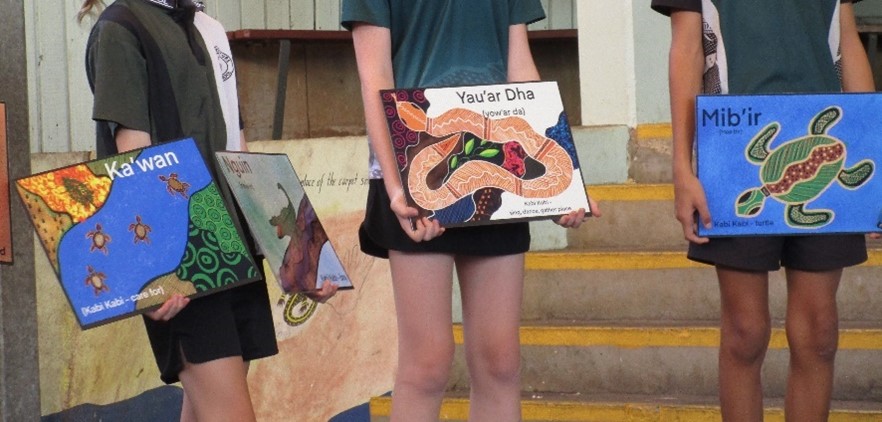
Caboolture State School has been immersing students in the Kabi Kabi language and their 2019 Indigenous Languages Grant supported them to bring the language to life around the school with a new signage program.
The school’s P&C association collaborated with key school staff, including their Indigenous Language teacher, as well as the Aboriginal and Torres Strait Islander parent group and a local First Nations artist on this project. They produced a suite of colourful artworks that are displayed around the school highlighting Kabi Kabi words for locations around the school, animals, the environment and more, along with their translations and pronunciations.
The Indigenous Languages Grant also supported the production of some striking flags that are proudly displayed at sporting events and other school activities, encouraging the wider community to learn more about the Kabi Kabi language.
Students, parents and teachers from the school community have engaged with the signs and flags, promoting conversations about language and culture, particularly Kabi Kabi. The school held a BBQ with the Aboriginal and Torres Strait Islander parents group to celebrate the new artworks being completed and to share how they would be displayed.
The Gunggari Native Title Aboriginal Corporation (GNTAC) is deeply committed to language revival. They have been working to document a fluent structure for the more than 4000 words in Gunggari and equip speakers with the correct pronunciation.
Their 2019 Indigenous Languages Grant enabled the Corporation to produce a new dictionary and online resources shared through their Facebook page so that people can understand the meaning of words and how to create sentences around them.
A crucial component of the project to promote, preserve and revitalise the Gunggari language was a two-day workshop at State Library of Queensland attended by three Gunggari Elders with extensive language and cultural knowledge. Their insights into the draft dictionary resulted in further edits and refinement which were then presented to the GNTAC Board for endorsement.
The dictionary, with its accompanying artwork, forms an important legacy of the three Elders — their language is now preserved in a solid, tangible form for current and future generations. There has been strong interest from Gunggari community members in using language in songs, poems, speeches and more, and the dictionary is expected to continue to be refined and added to in the years to come.
As well as making the dictionary and learning resources available online, workshops are also run to build confidence in community members to speak Gunggari. Their next workshop for 2022 will be held in Townsville on Saturday 26 March..
You can find out more about Gunggari culture and language revival in this ABC News article.
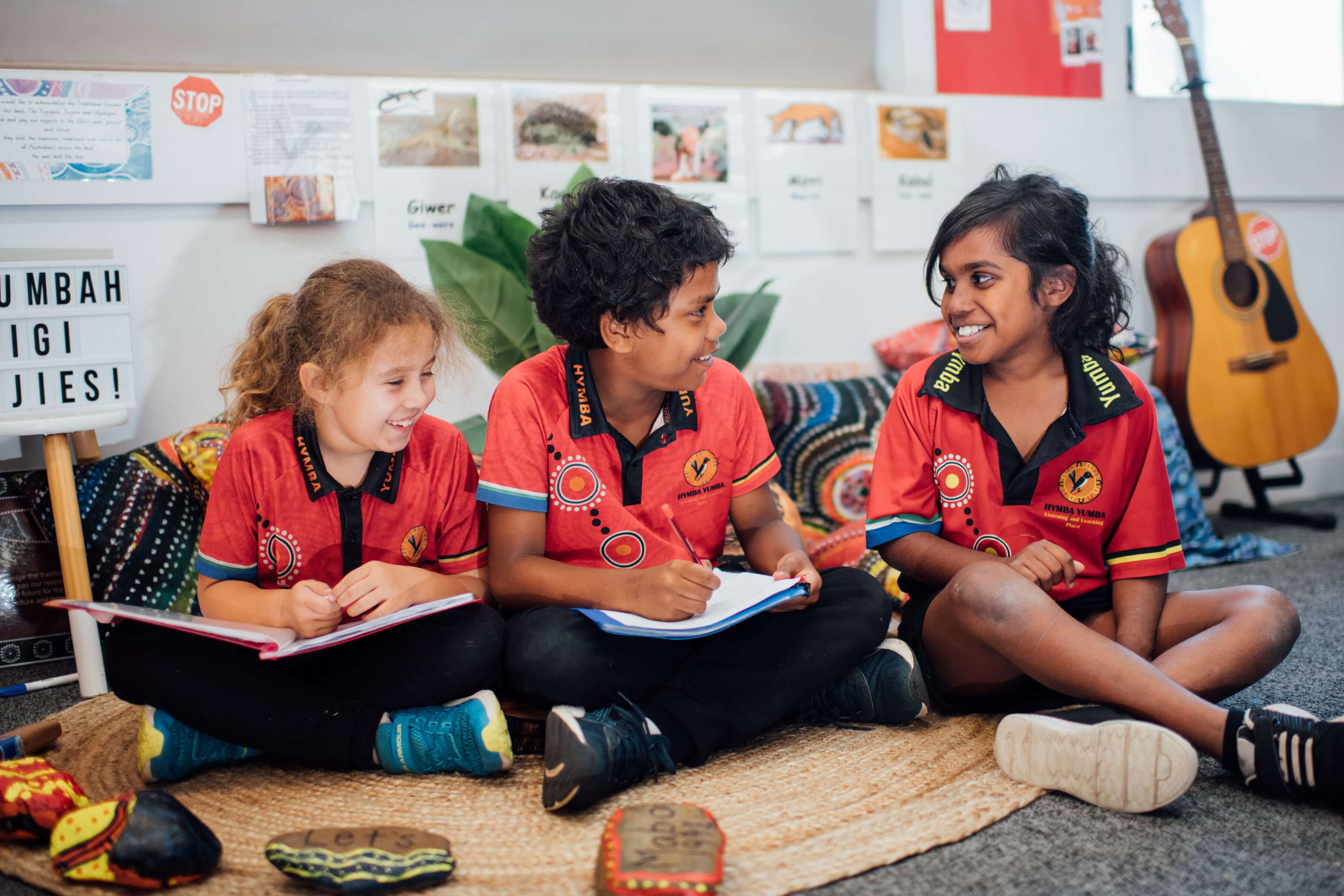
Springfield’s Hymba Yumba Independent School inspires jarjums (children) to learn and lead in both worlds, with Aboriginal and Torres Strait Islander culture and tradition at the centre of all they do. Their 2019 Indigenous Languages Grant supported the school’s languages teacher to produce a Yuggera Language Handbook to cement the importance of language in their curriculum and community.
The project provided an opportunity for Elders to regularly interact with the students — keeping the Yuggera language alive with families and Elders engaged with the wider community to share their knowledge.
The handbook was initially produced for primary students, but was so successful that it’s now available and in use in the secondary school as well. The major impact of the Indigenous Languages Grant has been to reinforce to the school community the importance of promoting and preserving language. They are inspired to work hard to ensure these languages are not lost forever and with their enthusiastic uptake of the Yuggera Language Handbook, the jarjums themselves have shown what a thirst for language the younger generation has today.
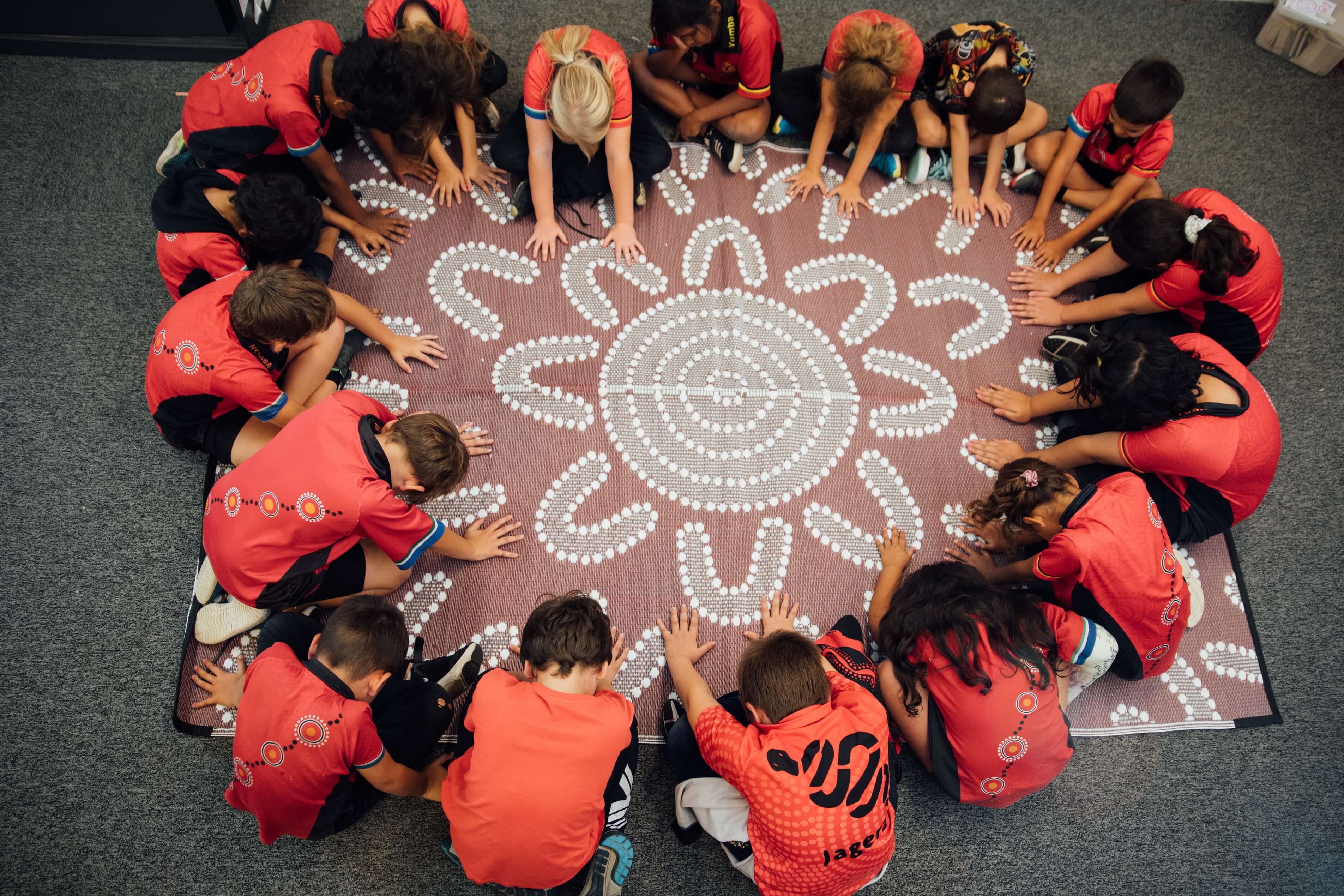
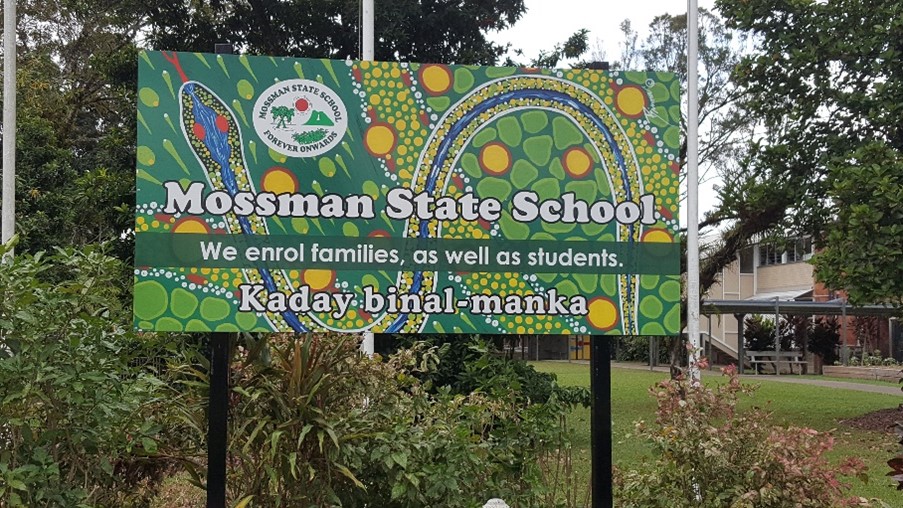
Mossman State School sits at the heart of this North Queensland town, on the doorstep of the spectacular Mossman Gorge. Their 2019 Indigenous Languages Grant supported them to work in partnership with the Kuku Yalanju Language Advisory Group to invite the wider community to “Kaday binal-manka” and “come learn with us”.
More than half of students at the school identify as Indigenous and the P&C Association sought to develop bi-lingual signs to acknowledge the Traditional Owners and highlight the importance of the culture and language of the Kuku Yalanji people both at the school and in the wider community.
Local artist Brian “Binna” Swindley worked closely with the P&C association to create artwork that was of significance to the local area and reflected a culturally-inclusive environment for learning. In addition to the welcome signs, the school also displays signage in both English and Kuku Yalanji to highlight the values and behaviours important for students to be their best.
Mossman State School’s Indigenous language partnership program with the Kuku Yalanji Language Advisory Group continues to grow across the curriculum, with language teachers employed at the school. A second Indigenous Languages Grant in 2020 supported a bi-lingual book developed by their Indigenous Leaders of the Future students about bush tucker and medicine of the Eastern Yalanji people. The students worked closely with Elders and community members to develop the book in language for students from Prep to Year 6, inspired by the garden created as part of the school’s new yarning circle.
You can find out more about language preservation and revival at Mossman State School in this feature on ABC TV’s The Drum and an article about the signage project from Newsport.
Transcript
[Juan Walker, Juan Walker, Kuku Yalanji Languages Consultant]
With the Indigenous language agreement it has helped the Mossman Primary School visualize the story of the Mossman Gorge, which is a large part of the wider Mossman community. As the Kuku Yalanji language teacher at the Mossman Primary School, I feel as though the signs have helped encourage the wider community to engage with the Kuku Yalanji language.

Mossman Support Service’s Muruku Art and Craft Group have worked with Elders to help revive the Kuku Yalanji language for primary school students from Prep to Grade 4 with a beautiful series of illustrated Early Readers. The first editions were produced in 2017 and featured cultural stories of fishing, bushwalking and tracking animals, highlighting the experiences of First Nations children with their families and environment.
Their 2019 Indigenous Languages Grant enabled the group to reproduce the six Early Readers with updated edits to ensure more accuracy in language and to provide published book sets free to schools across Mossman and surrounding areas. Group members have visited schools to engage young readers in the stories and introduce them to the oral, aural and visual aspects of the language.
The grant also supported book sets to be provided to local, state and national libraries to preserve the stories for future generations. Sales of the printed books have helped provide the Muruku Group with an ongoing revenue stream to keep the book sets in prints.
The stories have been digitised with vibrant illustrations by members of the Muruku Group and a voice recording by Kuku Yalanji Elder Clare Ogilvie, which is available to schools via USB. Visit the Mossman Support Service website to find out more about the Early Readers development and to read the stories online.


Not even the pandemic has been able to dampen the enthusiasm of the Wujal Wujal Aboriginal Shire Council to continue building a new language app for children to grow their Kuku Yalanji language skills.
Their 2019 Indigenous Languages Grant project has been led by the local Indigenous Knowledge Centre (IKC) and Wujal Wujal Language Reference Group. When safe to do so, they have been working with Elders to record words in language and align them with photography and new artworks created by local children, to bring the words to life via the Miromaa language app platform. The project has also enabled older children to build their technological skills using Miromaa and local artists to supplement the designs created by the younger children at the IKC.
Currently in the beta testing phase due to delays from the COVID-19 pandemic, once ready, the app will be freely available for early childhood programs and everyone looking to learn the Kuka Yalanji language including locals and visitors to the region. The reference group helped to determine the words, phrases and songs featured in the app and the intention is to continue to build the word lists over time, with Elders providing further feedback during the testing phase.
Despite the delays, such a strongly community-led project has already provided real benefits to Wujal Wujal, bringing people of all ages together to share in their language and learn together. Children have enjoyed engaging in their traditional culture through a modern method, while older community members have gained more confidence in using technology. The testing phase has already shown that children readily learn by using the app and they’ve been able to extend their traditional vocabulary.
The project team is still looking ahead and view the forthcoming launch as just the beginning, with additions such as sentence structure, grammar, traditional stories and songs all being planned for the future.
To try the app during its testing phase, Apple users just need to:
- download the TestFlight app to your iPhone or iPad from the App Store.
- click this link from your device.
